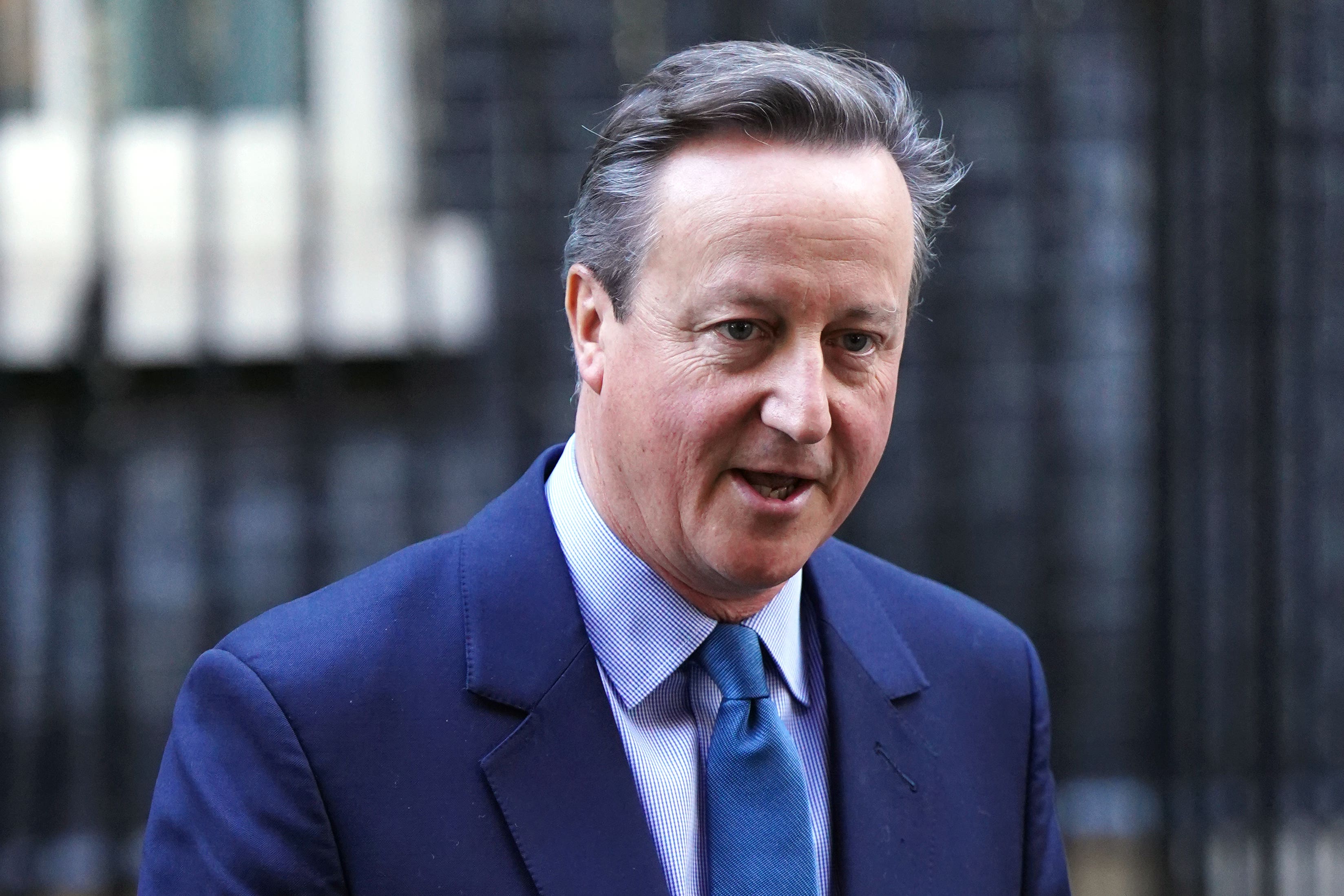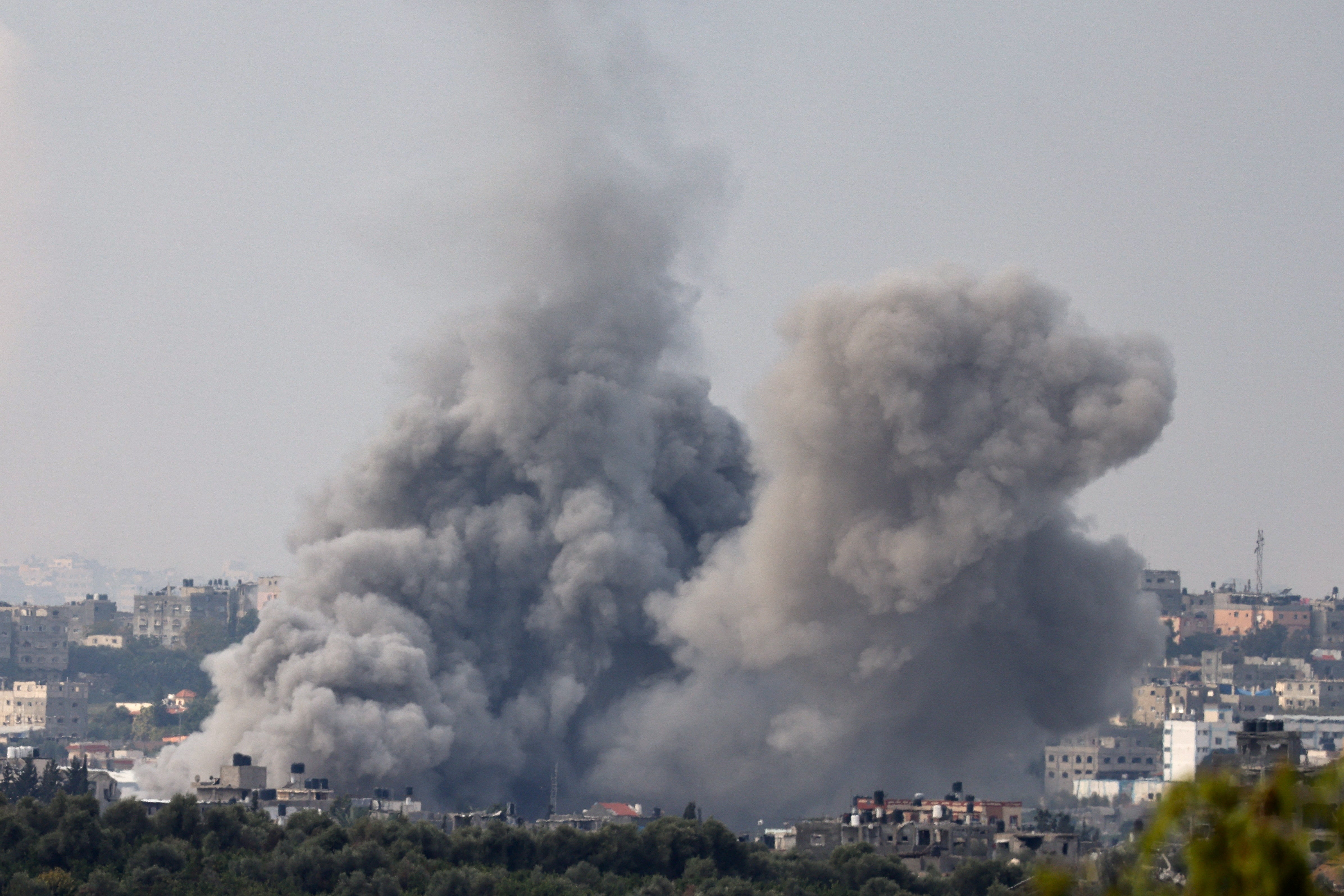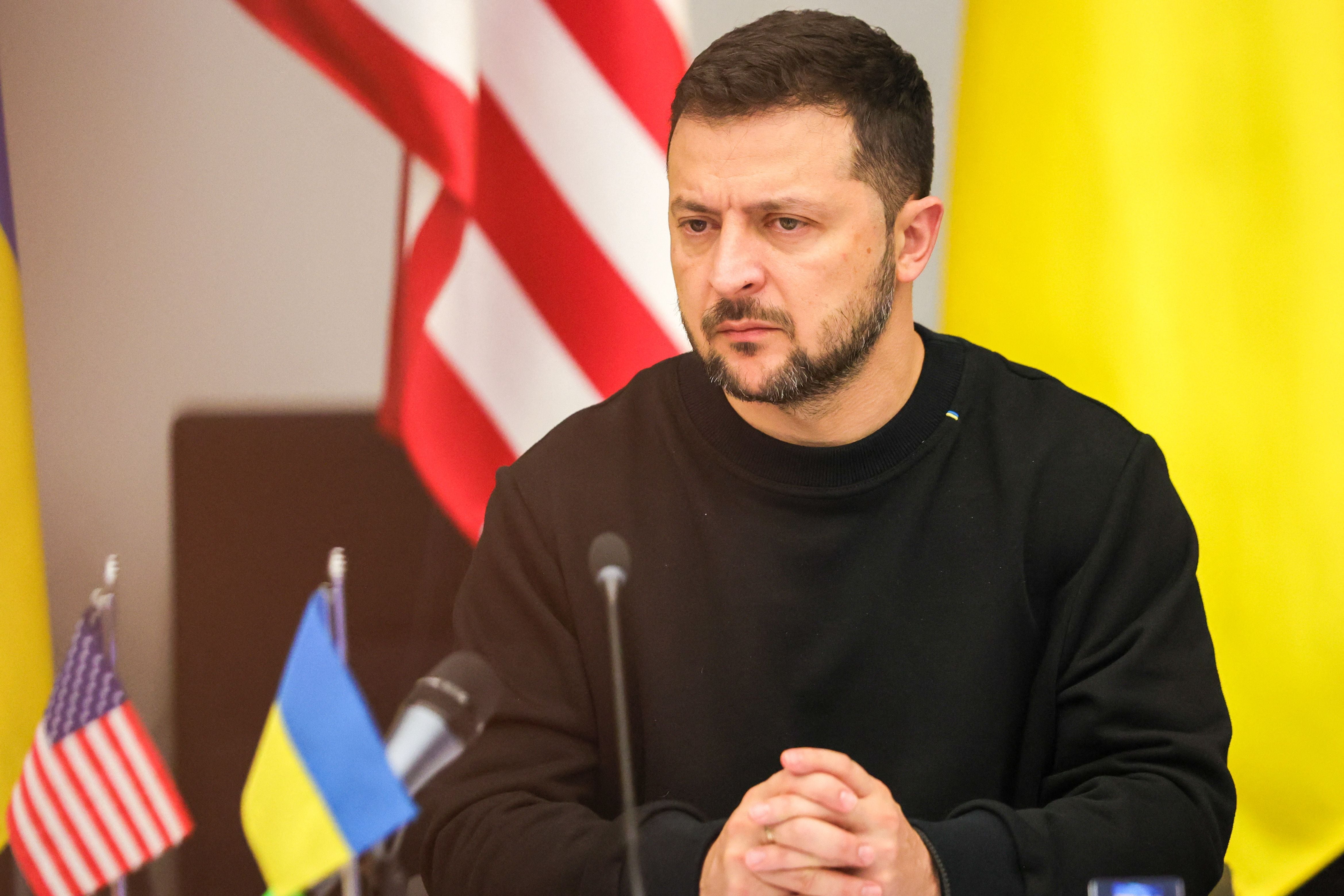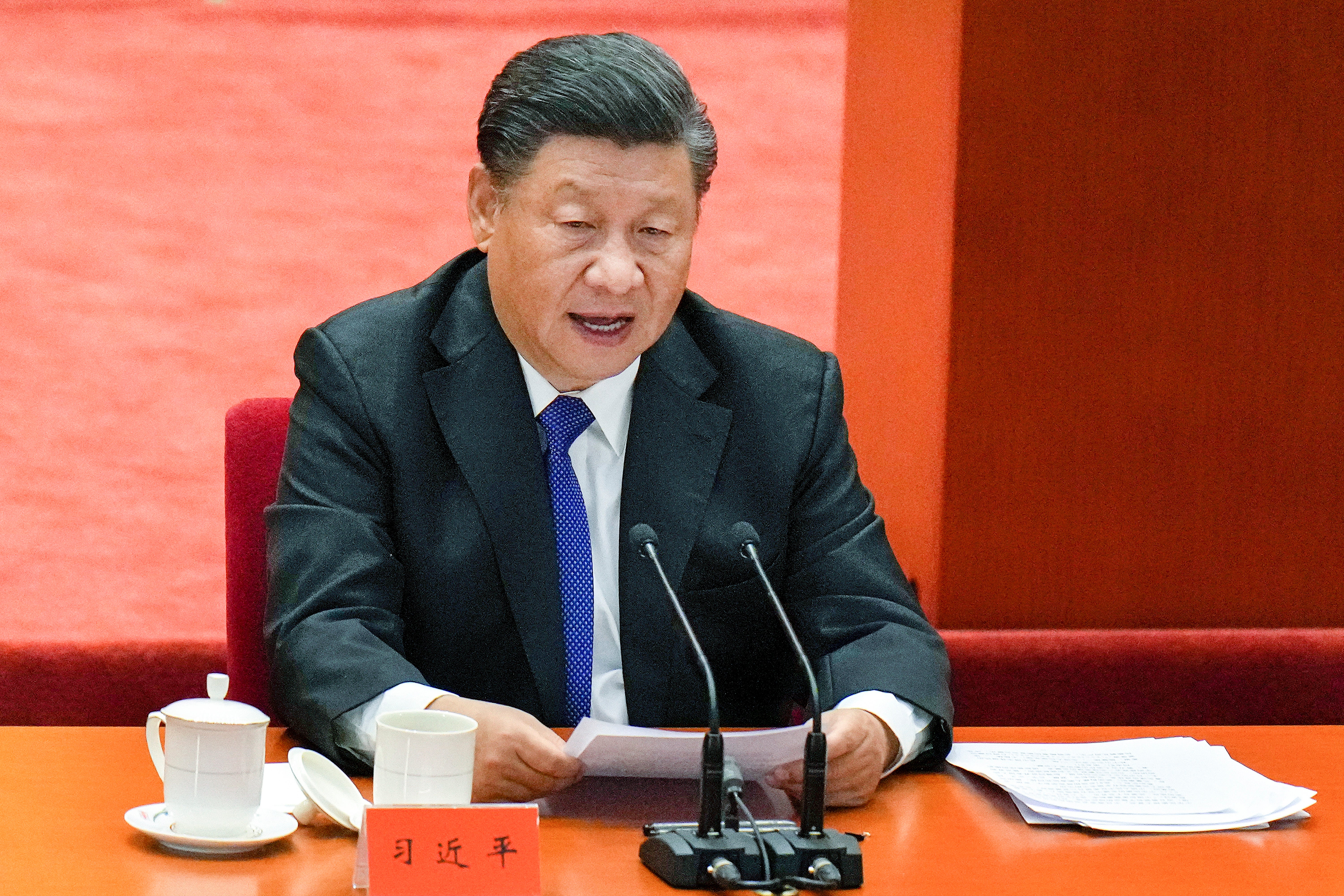From Gaza to Ukraine, China to the EU: The major issues piling high in David Cameron’s in tray
The former prime minister is re-entering frontline politics during a tumultuous time. Chris Stevenson looks at what he will need to tackle first and where his instincts may take him


David Cameron's return to frontline politics certainly gives Rishi Sunak a bit of heft in the role – a safe pair of hands who has seen more than his fair share of summits and meetings with leaders.
As Sunak looks to focus on domestic matters in the run-up to the election, Cameron's experience will prove valuable. But that does not mean things will be easy as the world grapples with a number of conflicts.
Israel-Hamas and the impact on Gaza
The most pressing issue is Israel's war on Hamas and the consequences for the civilian population of Gaza – and the risks of a wider regional conflict that could spread to take in Hezbollah in Lebanon and nations including Iran. As recently as Thursday, the former James Cleverly was in Saudi Arabia discussing efforts to prevent escalation with Middle Eastern foreign ministers, and Cameron will face an immediate task of carrying on that diplomatic effort.
The UK government has strongly backed Israel’s right to defend itself after the Hamas attack inside Israel killed more than 1,200 people, with around 240 people taken hostage back into Gaza. Sunak has called for “humanitarian pauses” in the conflict to let in aid, but, alongside counties like the US, has stopped short of a full ceasefire. Although, calls have been growing for more to be done to protect the lives of Gaza civilians as ground military operations continue alongside the aerial bombardment and blockade of the territory.

Cameron will have plenty of experience of talking about issues in the Middle East, but that also means there are plenty of previous comments to pick over. Cameron has also described himself as “well-known as being a strong friend of Israel" but in 2010, on a visit to Turkey, he said: “The situation in Gaza has to change... Humanitarian goods and people must flow in both directions. Gaza cannot and must not be allowed to remain a prison camp.” He added later on the same trip that he used similar language in the House of Commons a few weeks prior. He reportedly said at that point: “Everybody knows that we are not going to sort out the problem of the Middle East peace process while there is, effectively, a giant open prison in Gaza.”
Beyond Gaza, there is also the issue of violence in the occupied West Bank, with Palestinians talking of being forced from their land by Israeli settlers. Settlements in territories such as the West Bank are considered against international law by the UN and swathes of the international community. In 2016, then-Prime Minister Cameron said: “What this government has consistently done and gone on doing is saying yes, we are supporters of Israel, but we do not support illegal settlements.”
What is clear is that Cameron will not have an easy time of the diplomacy over events in Israel and Gaza, he can ask the US secretary of state, Antony Blinken, about that. Blinken has visited the region a number of times across the last six weeks, but progress has been slow.
In his statement saying he had accepted his new role, Cameron said: "At this time of profound global change, it has rarely been more important for this country to stand by our allies, strengthen our partnerships and make sure our voice is heard." The situation around Israel and Gaza is one that will test that.
Russia and the war in Ukraine
The same statement about allies and partnerships can be applied to Ukraine. The UK has been one of the staunchest supporters of Ukraine in the wake of Moscow's invasion in February 2022 Providing weapons, financial aid and political ballast. Sunak has made clear that Britain is in it for the long haul over Ukraine.
Such statements will be simple for Cameron, no doubt there will be more practical support too. The issue will come in keeping the rest of Europe and the US on the same page. There is little moment, for now at least, on the frontlines in the south and east of Ukraine.

President Volodymyr Zelensky has said that Ukraine has a battle plan going into 2024 for re-taking territory from Russia, but Kyiv's needs are the same as they have been for some time. More artillery, more air defence weaponry and the big ask – fighter jets. The UK has agreed to help train plots on current-generation jets, and other nations are part of that partnership. But as Kyiv makes clear, they need all this sooner, rather than later. Particularly as Zelensky expects his nation to face a similar aerial onslaught on its power infrastructure that came last winter. One that would leave thousands in the dark at any one time.
Cameron also faces the deepening issue of US funding for Ukraine. President Joe Biden has said he wants to send fresh funding to Kyiv, with the Pentagon warned this week it was being forced to “meter out” its support for Kyiv, after 95 per cent of its funds for Ukraine had been exhausted. But a looming government shutdown, along with growing apathy among some parts of the Republican Party towards funding Ukraine, has left things less solid than the White House would like.
As for Russia, Cameron has plenty of experience dealing with Moscow, having met Vladimir Putin a number of times. He also ws prime minister during the period where Russia annexed Crimea in 2014. Cameron deployed UK troops to train Ukrainian forces in 2015 following the seizure, which he described as a "flagrant breach of international law".
China
In the longer term, it is the UK's relationship with China that is likely to be the most challenging of Cameron's tasks.
As prime minister, he presided over the so-called "golden era" of relations between Britain and China, hosting a state visit by Chinese President Xi Jinping and welcoming investment from Beijing into the UK. Since then, relations between the two countries have deteriorated. In his first foreign policy speech as prime minister, Rishi Sunak declared the golden era over and described the pursuit of closer economic ties over the previous decade as "naive".

In 2017, Cameron accepted a role as vice-president of a £1 billion China-UK investment fund, which he held for a time. It was a move described by parliament's Intelligence and Security Committee as possibly "in some part engineered by the Chinese state to lend credibility to Chinese investment, as well as to the broader China brand".
His new role has also sparked criticism. Luke de Pulford, executive director of the China-sceptic Inter-Parliamentary Alliance on China, said it was an "incomprehensible, retrograde appointment" and described Cameron as "out of step with Parliament and the country on China".
The EU
The UK's relationship with the EU is the issue that blew up Cameron's own premiership, when he called the Brexit vote. While we are past the worst of the clashes during negotiations, there is still a need to be sensitive.
The issue also bleeds into a number of other issues, how Britain works with the EU on issues like Ukraine. Cameron will be seen as a steady presence in that regard, but there will also be the need to deal with nations like France and Germany on an individual basis. When it comes to France, there will also be the issue the small boats coming to the shore of the UK. While that will no doubt mostly be an issue for the home secretary, I would be surprised if Cameron's input wasn't sought.






Join our commenting forum
Join thought-provoking conversations, follow other Independent readers and see their replies
Comments